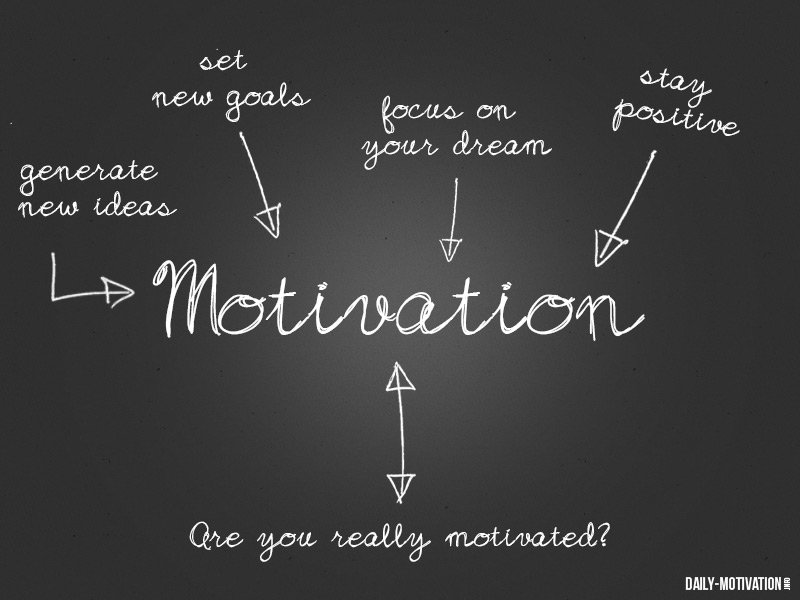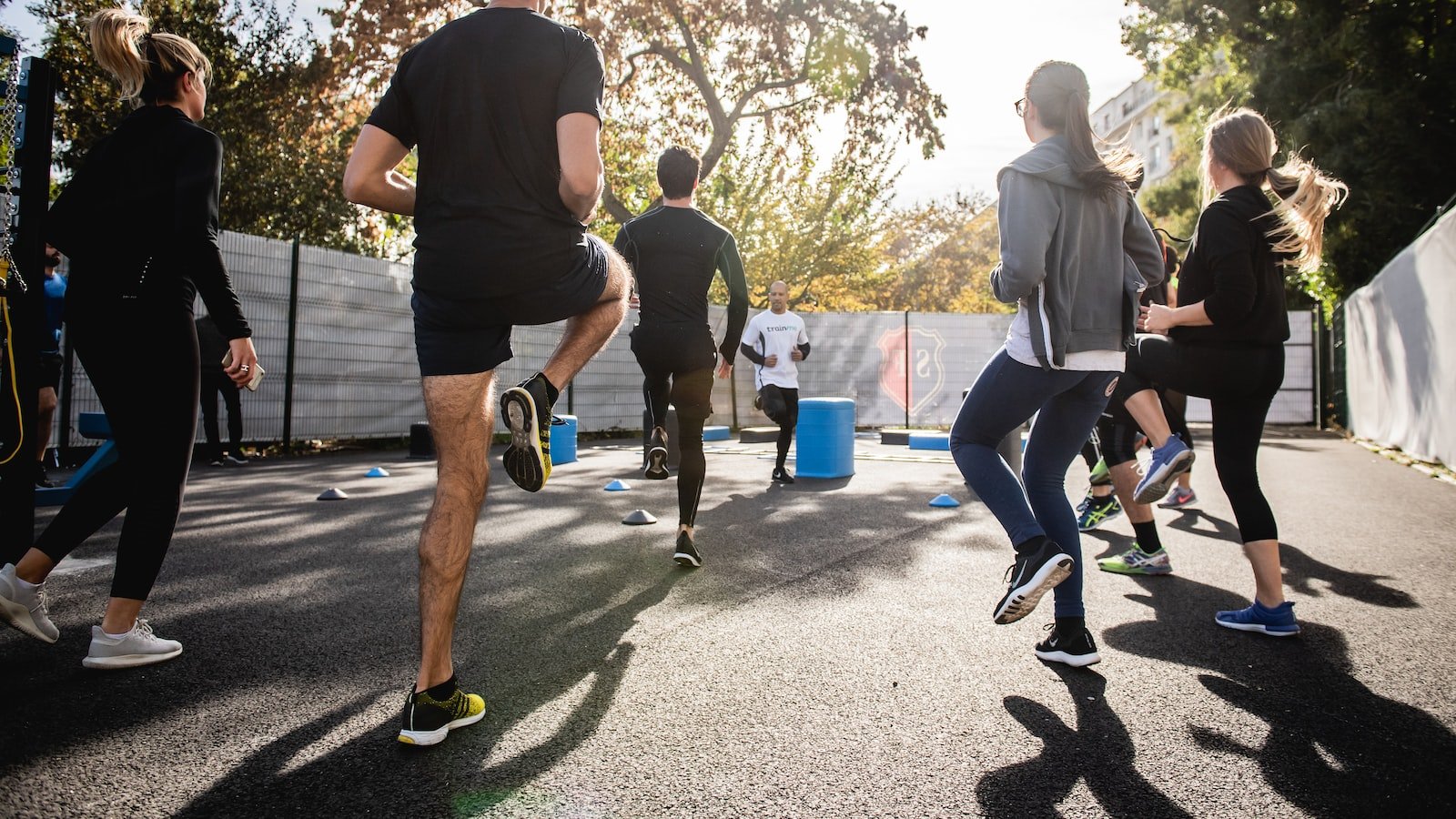The echoing applause and elation of crossing the finish line are but distant memories, eclipsed by the exhilarating whirlwind that is motherhood. As the blissful chaos settles and your body begins to regain its strength, thoughts of lacing up your running shoes and hitting the pavement reverberate within you. Whether you were a seasoned marathoner seeking solace in each stride or a leisurely jogger relishing the fresh air, reclaiming your running routine after pregnancy can feel both daunting and tremendously empowering. Fear not, as we embark upon this remarkable journey together, here’s a roadmap of gentle guidance to help you lace up, reclaim your stride, and embrace the transformative power of running once more.
Table of Contents
- Finding Your Motivation to Run Again
- Gradual Return: Listen to Your Body and Take it Slow
- Postpartum Exercise Guidelines: What You Need to Know
- Building Your Fitness Foundation: Focus on Core Strength
- Managing Expectations: Setting Realistic Goals
- Q&A
- Wrapping Up

Finding Your Motivation to Run Again
Are you feeling unmotivated to lace up your running shoes and hit the pavement? Don’t worry, we’ve all been there. Running requires not only physical strength but also mental determination. It’s completely normal to experience a dip in motivation from time to time. Here are a few tips to help you reignite that fire within and find your motivation to run again:
1. Set Realistic Goals: Often, lack of motivation stems from overwhelming expectations. Break your running goals into smaller, manageable milestones. Whether it’s running a certain distance or improving your speed, celebrate small victories along the way. This will not only boost your confidence but also keep you motivated to push further.
2. Change Your Routine: If you feel stuck in a running rut, consider switching things up. Explore new running routes or trails that pique your interest. Join a local running group or find a running buddy to add a social element to your runs. Sometimes, all it takes is a change in scenery or some company to inject excitement back into your running routine.
3. Reward Yourself: Treat yourself for staying committed to your running journey. Set up a rewards system based on your goals—small rewards for achieving short-term milestones or a bigger reward for reaching a significant milestone. It could be treating yourself to a massage, indulging in a delicious meal, or buying that running gear you’ve had your eye on. These incentives will provide an extra boost of motivation and give you something to look forward to.
Remember, motivation can be fleeting, but with the right strategies and mindset, you can reignite your passion for running and get back on track. Stay focused, stay determined, and most importantly, enjoy the process. Happy running!
Gradual Return: Listen to Your Body and Take it Slow
In the process of returning to physical activity after a period of rest or injury, it is important to listen to your body and take it slow. Gradually easing back into exercise can help prevent further harm and ensure a smooth transition to a more active lifestyle.
Your body is an incredible machine, capable of adapting and healing itself. By paying close attention to how you feel during and after each workout, you can gauge your progress and make adjustments accordingly. It’s essential to recognize that the path to recovery is not a race, but rather a journey that requires patience and perseverance.
Here are some tips to keep in mind as you embark on your gradual return:
- Start small: Begin with low-impact activities or exercises that are less demanding on your body. This could include gentle stretching, light walking, or engaging in activities that promote flexibility and mobility.
- Listen to your body: Pay attention to any pain or discomfort during and after exercise. If you experience any unusual symptoms, it may be a sign that you need to dial back the intensity or modify your routine.
- Set realistic goals: Be patient with yourself and avoid comparing your progress to others. Focus on setting achievable goals that align with your current abilities and gradually work towards them.
- Rest and recover: Give your body time to rest and recuperate. Adequate rest periods allow your muscles to repair and grow stronger, reducing the risk of overuse injuries.
- Stay consistent: Consistency is key to a successful return to physical activity. Aim for regular, but not excessive, exercise sessions to gradually build your strength and endurance over time.
Remember, the process of getting back into shape is unique to each individual. Be kind to yourself and celebrate the small victories along the way. By listening to your body, taking it slow, and being mindful of your limits, you can ensure a safe and enjoyable journey towards a healthier, more active lifestyle.

Postpartum Exercise Guidelines: What You Need to Know
After giving birth, it’s essential to prioritize your well-being as you navigate the journey of motherhood. Incorporating exercise into your postpartum routine can have numerous benefits, both physically and mentally. However, there are important guidelines to consider to ensure a safe and effective postpartum workout regimen.
- Consult with your healthcare provider: Before starting any postpartum exercise routine, it’s crucial to receive clearance from your healthcare provider. They can assess your individual situation and advise on what types of exercises are suitable for you.
- Begin gradually: Your body has undergone significant changes during pregnancy and childbirth, so it’s important to start with low-impact exercises and gradually increase intensity and duration over time. Walking, swimming, and gentle yoga are excellent options to begin rebuilding strength and stamina.
- Pay attention to your pelvic floor: Pregnancy and childbirth can weaken the pelvic floor muscles, so it’s crucial to engage in exercises that strengthen this area. Kegel exercises and Pilates are effective in rehabilitating the pelvic floor muscles, reducing the risk of urinary incontinence and promoting overall core stability.
- Listen to your body: It’s vital to listen to your body’s cues during postpartum exercise. If you experience pain, dizziness, or excessive fatigue, it’s a sign to slow down or modify your routine. Always prioritize your comfort and well-being.
Remember, every woman’s postpartum journey is unique, so it’s important to tailor your exercise routine to your individual needs. By following these guidelines and gradually increasing the intensity of your workouts, you can embark on a safe and fulfilling postpartum fitness journey.
Building Your Fitness Foundation: Focus on Core Strength
When it comes to building a strong and healthy body, focusing on core strength is essential. Your core is not just your abs – it includes your back, hips, and pelvis, making it the foundation for all movements and exercises. By developing a strong core, you can improve your balance, stability, and overall performance in various activities, from sports to daily tasks.
Here are some key tips to help you enhance your core strength:
- Engage in targeted exercises: Incorporate exercises that specifically target your core muscles into your fitness routine. Planks, Russian twists, and bicycle crunches are just a few examples of exercises that can effectively engage your core.
- Use functional movements: Aside from isolated exercises, functional movements that require core stabilization, such as squats and deadlifts, can play a significant role in strengthening your core. These compound movements engage multiple muscle groups, including your core, to provide stronger overall support.
- Focus on posture: Maintaining proper posture throughout the day not only protects your spine but also helps activate your core muscles. Be mindful of your posture while sitting, standing, and performing exercises, ensuring that your core is engaged and your spine is aligned.
- Don’t forget about flexibility: Combining core strength with flexibility is crucial for overall fitness. Incorporate exercises that improve flexibility, such as yoga or Pilates, into your routine to enhance your core strength further.
Remember, building your fitness foundation starts with a strong core. By prioritizing core strength and incorporating these tips into your fitness routine, you’ll be well on your way to achieving a balanced, powerful, and functional body.
Managing Expectations: Setting Realistic Goals
In today’s fast-paced world, it’s easy to get caught up in the chaos and frenzy of setting unrealistic goals. We often strive for perfection, pushing ourselves to the limit without considering the consequences. However, it’s important to take a step back and reassess our approach to ensure we’re setting achievable expectations.
One effective way to manage expectations is by setting realistic goals. These goals should be specific, measurable, attainable, relevant, and time-bound (SMART). By breaking down our larger goals into smaller, more manageable tasks, we can create a roadmap for success. Remember, Rome wasn’t built in a day, and every journey begins with a single step.
Another crucial aspect to consider when managing expectations is to acknowledge and understand our limitations. We’re only human, and it’s natural to experience setbacks and obstacles along the way. Embrace these challenges as opportunities to learn and grow. By accepting our weaknesses and seeking support when needed, we can prevent frustration and disappointment.
Ultimately, managing expectations and setting realistic goals allows us to maintain a healthy balance between ambition and feasibility. It empowers us to make progress towards our dreams without sacrificing our well-being in the process. So, remember to aim high, but also stay grounded. With the right mindset and approach, we can achieve remarkable things.
Q&A
Q: Can I start running immediately after giving birth?
A: It’s important to consult your doctor before getting back into running after childbirth. Typically, waiting for at least six weeks and gradually easing into it is recommended to prevent injury and allow your body to recover properly.
Q: How should I prepare my body before running post-pregnancy?
A: Begin with low-impact exercises like walking or swimming to rebuild your strength slowly. Additionally, aim for pelvic floor exercises to help strengthen the muscles that may have weakened during pregnancy and childbirth.
Q: What should I wear while running post-pregnancy?
A: Invest in good-quality, supportive sports bras that fit properly to minimize discomfort while running. Opt for loose-fitting, moisture-wicking clothing to ensure you stay comfortable and dry during your postpartum runs.
Q: How should I manage my energy levels when starting to run again?
A: Start with shorter runs and gradually increase your distance and intensity over time. Listening to your body and prioritizing proper rest and nutrition will help maintain and improve your energy levels as you ease back into running.
Q: How can I prevent injury when returning to running post-pregnancy?
A: Ensure you warm up before each run with dynamic stretches and incorporate strength training exercises to strengthen your core and lower body. Pay attention to your form and technique, and don’t push yourself too hard too soon.
Q: How can I balance running with the demands of being a new mom?
A: Incorporating your baby into your running routine can be a great way to bond and ensure you find time for yourself. Use jogging strollers or baby carriers to safely include your little one, and consider joining local mommy running groups for support and motivation.
Q: Are there any warning signs I should watch for while running post-pregnancy?
A: Pay attention to any persistent pain, excessive fatigue, or urine leakage while running. These signs could indicate underlying issues such as insufficient recovery or pelvic floor problems. If you experience any concerning symptoms, consult your healthcare provider.
Q: How can I stay motivated when returning to running after having a baby?
A: Set realistic goals and celebrate small achievements along the way. Find a running buddy or join virtual running communities for support and accountability. Remember that consistency is key, so embrace the process and be kind to yourself throughout your post-pregnancy running journey.
Wrapping Up
As you lace up your sneakers and take that first exhilarating step, remember this: you are embarking on a journey that goes far beyond just running. It’s a transformative odyssey that brings together the strength of your body and the power of your spirit. After the incredible journey of pregnancy, you may have wondered if you would ever feel the wind against your face as you hit the pavement, the rhythm of your heartbeat syncing with the symphony of your breath. Well, wonder no more, because today is the day you reclaim your love for running.
Walking hand in hand with patience and determination, you begin to rediscover the magic of the track or trail that once fueled your passion. Your body may feel foreign at first, remnants of the miraculous changes it underwent during those nine months, but it’s a canvas waiting to be sculpted anew. Trust yourself, trust your body, and trust that each gentle stride will gradually reconnect you with the runner you were and the runner you will become.
Don’t let the whispers of doubt dampen your spirit; instead, let them fuel your fire. Embrace the inevitable setbacks and obstacles as opportunities to prove your resilience. Remember, you are not alone on this journey. There are countless women who have ventured down this path before you, their footprints left as a testament to the indomitable strength of the human spirit.
Just as the sun rises each morning, your motivation will blossom and bloom, illuminating the way forward. Cherish the small victories, for they will be your stepping stones towards reclaiming your stride. The melodic cadence of your breathing and the synchronized rhythm of your feet will become your anthem of triumph, echoing through each mile conquered.
As you run, let your mind wander to the immeasurable love that led you here. Your little one, the precious life you nurtured within, has unwittingly become your ultimate running partner. Together, you embark on this post-pregnancy running journey, setting an example of perseverance and self-care. In embracing the challenge, you are teaching them that obstacles can always be overcome, dreams can always be pursued, and strength is not merely forged through muscles, but through the indelible power of the human spirit.
So, as you step over the finish line of this article, remember that your post-pregnancy running journey is not just about reclaiming your physical strength - it’s about rediscovering your inner warrior, igniting the fire within, and reaffirming your connection to self. With every run, you rewrite your story, painting vibrant hues of resilience, courage, and unwavering determination.
Now, take a deep breath, tie your shoes a little tighter, and let the rhythm of your heartbeat guide you back to the magic of running. The road ahead may be filled with challenges, but your path is illuminated by the light within you. Welcome back, amazing mom-runner. Welcome back to the world of infinite possibilities.
As an affiliate, my content may feature links to products I personally use and recommend. By taking action, like subscribing or making a purchase, you’ll be supporting my work and fueling my taco cravings at the same time. Win-win, right?
Want to read more? Check out our Affiliate Disclosure page.